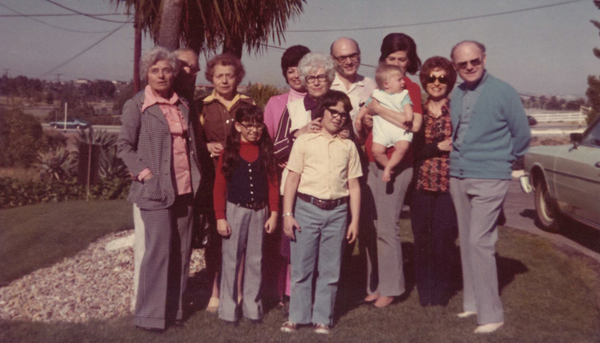[ 1,092 words ]
Does elegance in modern business mean ‘simplicity’?
No. Elegance means defined for purpose. Unearthing insight in a complex world. Able to deliver desired outcomes. Too frequently, a focus on simplicity fails to deliver value.
When considering grace, I’m drawn to memories of my parents’ dinner parties. At the center stands my mom, Hope, with beautifully coiffed hair, an elegant, purple blouse, and sharply creased black slacks . . . on our bright orange, shag carpet. I don’t know what the dinner guests thought of the intense rug. But they love my Mom’s desserts. “They’re low-fat!” Mom would say, “Have another piece.” I’d steal two.
Hope didn’t realize that low-fat doesn’t imply healthy, however. My Mom didn’t consider that you don’t simply remove fat from a traditional recipe; fats / oils must be replaced to deliver tasty food. And many substitutes, such as sugar, hefty doses of salt, and specialty carbohydrates can harm well-being.

Thankfully, fewer houses sport orange shag carpet today– and less new foods sport spurious ‘low fat / oil’ claims. For society, learning to deal with “low fat” has been a journey. Food labeling regulations have needed to become more balanced, and many organizations have learned to incorporate a more sophisticated approach towards fats / oils, carbohydrates, and sweetness.
However, Europe now prepares to undo some of that progress in a well-meaning Farm-to-Fork war to “ensure public health” (among other goals). We’ll see a new food-company-agreed Code of Conduct for responsible business and marketing, stimulus for processed food reformulation, harmonized front-of-pack labeling, and more.
The initiative tantalizes. Imagine: an army of private organizations and individuals will reformulate millions of dishes that will presumably be clearly and simply labeled from A (Good) to E (Avoid). And ethical marketers will bring these foods to market. “It [will be] the small everyday deeds of ordinary folk that keeps the darkness at bay,” as the wizard Gandalf says in The Hobbit.
But that potential misses key aspects of reality. An army must have tools to wage war. Innovators can only deliver products they can describe. And the proposed European communication tool, the Nutri-Score label, lacks vocabulary. Everything the Nutri-Score recognizes about nutrition is summarized in an absurdly short four pages. It takes twice as many words to describe rules limiting use of the Score’s graphic design.
Resulting innovations will be twisted. Nearly every major bottled fat / oil, for example, is described for consumers as “suggest to eat less frequently.” I can visualize millions of party hosts echoing my Mom, “The dessert is low fat! I adjusted the recipe so it tastes good with less oil. Have another piece.” Yet that claim will be no more valid in the future than when Hope said it.
As digital technology expands our ability to create, our challenge defining what we’ve created increases. Useful definitions become more nuanced and complex, yet must continue to have a clear relationship with simple measures of ‘good’ and ‘bad’. The notion of elegance in such descriptions must incorporate the ability for practitioners to apply them to define cutting-edge innovation.
As a business leader, you have self-interest at stake, in addition to ‘responsibility’. Poor diet, for example, leads to hundreds of billions of dollars in healthcare costs every year, and people die (in total) hundreds of millions of years early. And thus such issues represent Trillions of reasons for business to develop effective solutions.
You’d fire on-the-spot any designer who recommended orange shag carpet today. So don’t accept a business design that only provides a Ghost of Hope. Embrace a language that empowers constructive innovation by recognizing the world’s complexity. And ensure the strategy, incentives, and tools designed for the corresponding solution are aligned.
I’m collaborating with Dr. Steve Greenspan to develop a combined summary of the economic, social, and biological systems impacting our food’s health, initially focused on fats and oils. Resulting learning can help architect policy debate, target community and research effort, and empower business to profitably deliver healthier food. Perhaps we’ll help #ReverseAging by increasing life expectancy faster than time passes. We certainly have the technology to do so.
Is your language of responsibility sufficient to preserve your organization and support value-creating change?
Safeguard your future today. And position yourself to thrive for your children tomorrow.
Rod
Dr. Rod Wallace is an economist, consultant, and speaker who helps businesses make more money by solving society’s problems. A Fulbright Fellow, he has led multi-organization billion-dollar initiatives worldwide and partnered with a Silicon Valley pioneer to explore the impact of Artificial Intelligence on society.
Rod speaks about how to integrate social responsibility into business to maximize profit and purpose. He highlights digital technology’s impact on society and the strategies and tools with which business can solve our big, systemic problems.
Contact Rod at info@RodWallacePhD.com.
